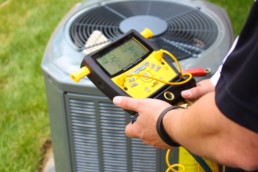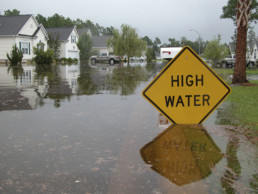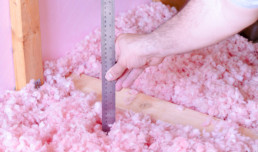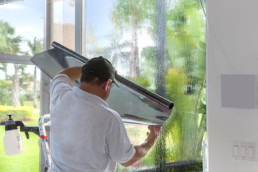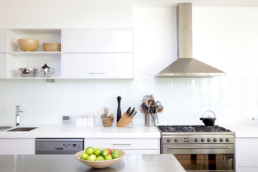Top 10 Questions to Ask Your Potential HVAC Contractor
Finding an HVAC contractor in your city won't be difficult to do. There are more than 100,000 HVAC contractors in the country today, which means there should be more than a few options in your general area.
But finding the best HVAC contractor? That's a different story! Since there are so many HVAC contractors, you'll need to do your homework to find the right one to provide you with HVAC services.
One way to do it is by asking HVAC questions to as many contractors in your city as you can find. This will help you narrow down your search and show you which HVAC contractors are worth your time.
Here are 10 questions to ask potential HVAC contractors.
1. How Long Have You Been an HVAC Contractor?
If an HVAC contractor just started working on HVAC systems last week, they're not the best option for you. An HVAC contractor doesn't necessarily need 50 years under their belt to perform most HVAC services, but that doesn't mean you should trust someone with no experience, either.
One of your first HVAC questions should be about an HVAC contractor's experience level. You want to know that they'll know what they're doing while working on your home's HVAC system.
2. Are You Fully Licensed and Insured?
You should not, under any circumstances, work with an HVAC contractor that isn't fully licensed and insured.
Ask for an HVAC contractor's business license number and tell them you need to see a copy of their HVAC insurance policy. If they hesitate to provide you with either of these things, move on to your next option.
3. Do You Work With Residential or Commercial Clients?
There are some HVAC contractors who specialize in working on the HVAC systems in homes. There are others who work exclusively on HVAC systems in businesses. Some also do some combination of both.
Assuming you need an HVAC contractor for your home, you should check to see that the HVAC contractor you're speaking with deals with homeowners on a regular basis.
4. What HVAC Services Do You Offer?
Most HVAC contractors offer the same basic services. They can help you install, maintain, and repair any aspect of your HVAC system.
But some also offer services that are outside the normal scope. For example, some HVAC contractors will do air duct cleaning for you and improve your indoor air quality.
If you need services like these, it's always a good idea to ask an HVAC contractor if they're capable of providing them. Not all of them are up for the challenge.
5. How Much Do Your HVAC Services Cost?
Cost shouldn't be your No. 1 concern when you're looking for an HVAC contractor. That's why we didn't put cost as the top question on this list of HVAC questions.
But you will obviously want to consider how much an HVAC contractor charges to, say, install a new air conditioner in your home. The national average for a new AC unit installation is about $5,000, but different HVAC contractors in your area will charge different amounts.
Feel free to ask about the costs associated with each service an HVAC company provides.
6. Do You Offer Any Warranties or Guarantees?
When hiring an HVAC contractor, you want someone who will stand behind their work. They should extend warranties and/or guarantees on the products and services they sell. This will give you an unparalleled peace of mind when you work with a contractor.
7. What Are Your Business Hours?
Most good HVAC contractors do more than just work 9 to 5 every day. More often than not, they'll put in long hours to make sure their customers are satisfied. They'll even come out to your home after-hours if you need them to.
8. How Fast Could You Come to My Home?
Do you have an emergency situation on your hands that requires the attention of an HVAC contractor right away? Or do you want to make sure your new AC is installed before next week when your family comes into town?
Talk to your HVAC contractor about whether or not they can provide you with prompt services. You may have to pass on working with a perfectly good HVAC contractor because they're not able to send someone to your home fast enough.
9. Can You Provide References?
In 2019, it's never been easier for homeowners to track down online reviews for HVAC contractors. You can find dozens of reviews for the HVAC contractors in your area by conducting a simple Google search.
But you can also ask HVAC contractors themselves to provide you with reviews and set you up with the names and numbers of a few references. It helps to know what other people have had to say about a contractor before hiring them to do a job.
10. What Sets You Apart From Your Competition?
As we mentioned earlier, there will be no shortage of HVAC contractors in your area trying to attract your business. They'll all tell you that they're better than the next contractor and able to provide you with superior services.
Have them tell you what sets them apart from the other HVAC contractors that you've spoken to. They should talk at length about how they have an outstanding reputation in the area and strive to keep their customers 100 percent satisfied.
The answer to this question, coupled with all the others, will let you know whether or not an HVAC contractor means business.
Ask These HVAC Questions to Different Contractors
Ask five or ten HVAC contractors in your area the HVAC questions found here.
When you do, we don't think that any of them will give you the same great answers that we will. We're committed to our customers and promise to provide you with the best possible HVAC products. We guarantee all the work that we do and make it our mission to leave our customers happy with our services.
Contact us today to schedule an appointment or to ask any questions you might have about our extensive HVAC experience.
How Your A/C Promotes Weight Loss & Affects Your Health
New Year’s Resolution- How Your A/C Promotes Weight Loss & Affects Your Health
1. Colder temperatures can activate brown fat, the type of fat that generates body heat. As temperatures drop below 77 degrees, your metabolism starts to rise. When brown fat is fully activated, it could result in 8.82 lbs lost per year.
2. Keeping a room cool keeps you alert with energy to stay busy and keep moving.
3. Sleeping in a cold room burns more belly fat. Part of what the survey discovered is that sleeping cold increases REM sleep. This can burn as much as 140 extra calories per night while sleeping. That’s as much as 14 pounds a year!
4. Having a proper IAQ filtration with your air conditioner running keeps the air filtered in your home, making a healthier environment. This keeps your body healthy and allows for your cells to regenerate accurately and promote weight loss.
5. Regulating the humidity in your home allows for you to keep your immune system in good working condition and provides for you to have the energy to workout and avoid illnesses and fatigue.
How Does Your Air Conditioner Affect Your Health
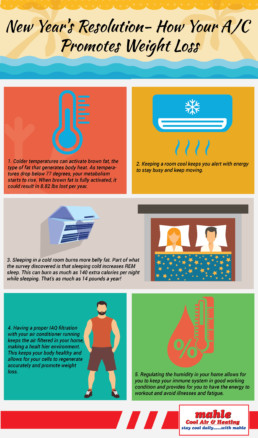
Cold In Florida? Better Check These Things Before Turning On Your Heater!
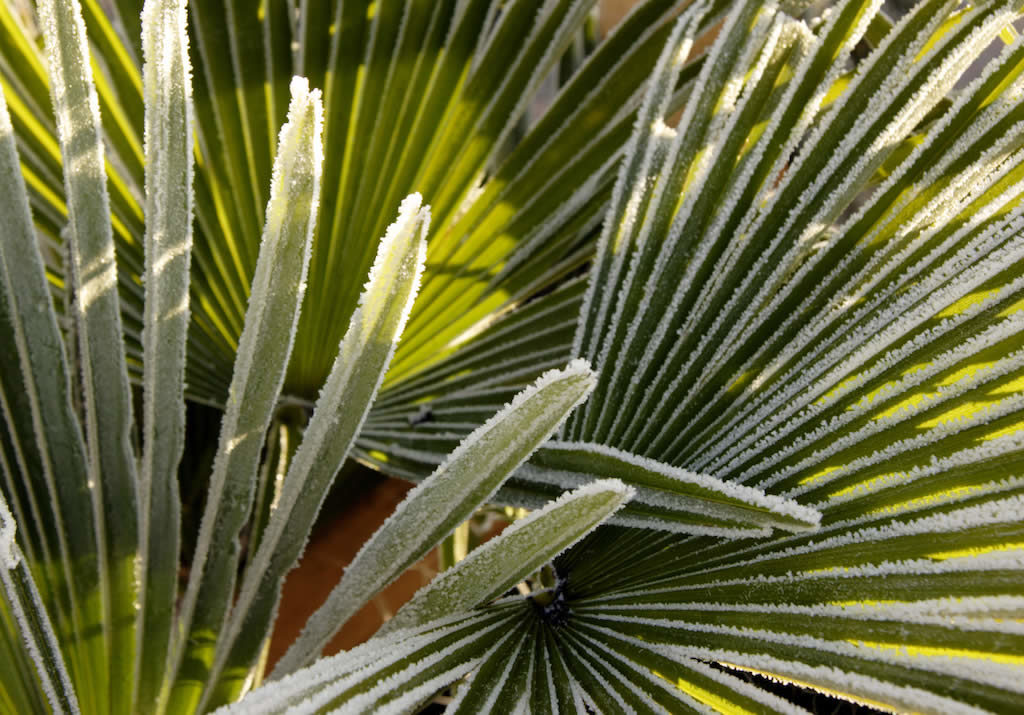
In a hot state like Florida, some of us get excited about cranking up the heater we don’t get to use very often. However, it’s wise to hold off until you’ve made sure that your unit is clean, safe and optimally efficient. This will not only extend its life, but it will save you money, protect the environment and keep you warmer.
When it’s cold outside, a running heater in Florida is just as important as a running heater in Wisconsin. Regular maintenance by your HVAC company is a must, but there are some do-it-yourself steps you can take to get the most out of your equipment.
Check Air Supply Vents
Warm air enters your rooms through air supply vents, so they need to be thoroughly dusted or vacuumed. This is especially true of floor vents that collect dust, debris and pet hair.
Check Air Filters
Depending on the type of system you have, the air filters on the return grills should be changed either every one to three months or every six to 12 months. You may even have washable air filters.
Whatever kind you have, they shouldn’t look dark or have dust and lint clinging to them. Check to see if they need washing or replacing, especially if you know deep down in your heart that it’s been a while. When you hold them up to a light source, plenty of light should shine through.
Not only do filters keep your furnace or air handler heater clean for better performance, but they filter out dust, bacteria, and allergens before those pollutants wind up in your lungs. Everyone agrees that poor air quality in the home is a health risk. Clean filters also eliminate that unpleasant odor of burning dust.
Clean Around the Unit
Clean the entire area around the heat pump, furnace or air handler heater. Clear any obstructions. It goes without saying that chemicals and flammable materials in the vicinity need to be relocated a safe distance away. Dust the exterior of the unit.
Trim back trees or shrubs to prevent contact with heat pump outdoor units, and inspect the condenser coil. That’s the looping length of copper or aluminum that exchanges heat from the air. Excessive dirt will impact efficiency and lead to repairs down the road.
If you have an indoor system, your evaporator coils are internal and are inspected by a technician during routine maintenance.
Play It Safe
For owners of gas furnaces, the importance of having a well-functioning smoke alarm can’t be overstated. It’s time to change the batteries, cover your ears and make sure that the alarm is working properly.
If you don’t have a smoke alarm, get one. Install it today.
Along the same lines, a carbon monoxide detector could save your life. If you have one, replace the batteries. Test it before you turn on the heat.
If the reading on the device exceeds 30, turn off the heater immediately, open all the windows and call your HVAC company. Some experts advise leaving the house until a professional diagnosis and correct the problem.
Finally, make sure that your thermostat is working properly.
Maintaining a running heater in Florida may not be at the top of your priority list, but it’s better to be safe than sorry. The longer a heating system is neglected, the greater the likelihood of malfunctions that call for costly repairs.
Besides, who wants to be caught unawares in a cold snap? Check out our special fall and winter offers and Call or Text us today for more details (941) 203-7955.
Flooding and Your HVAC Equipment in Southwest Florida
People who live in flood zones in Southwest Florida have to think about more than simply weathering storms. Many people board up windows and place sandbags around their homes in an effort to keep floodwaters from encroaching and damaging their property. In addition to their personal property inside of their homes, homeowners who live in flood zones also have to worry about their HVAC units.
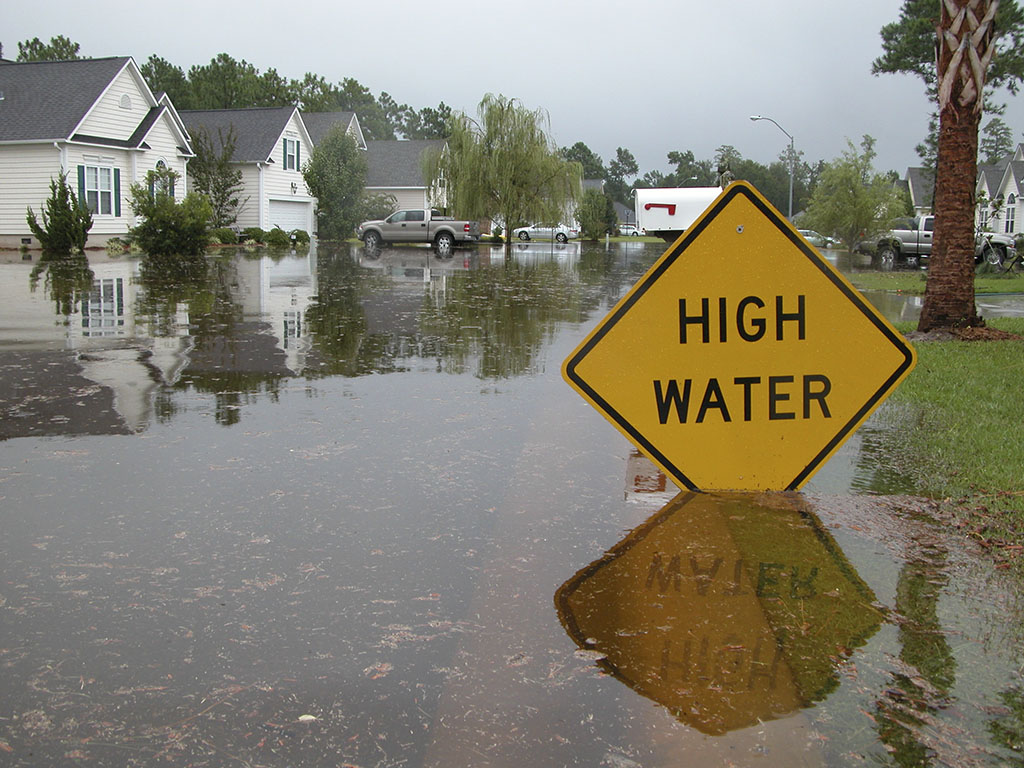
These units may become damaged in floods and need to be replaced. People should also be aware that many areas in the region have recently been rezoned as flood zones, making it important for people to move their HVAC systems above the design flood elevation to protect them in case a flood occurs.
How floods can damage HVAC units
While it is true that some HVAC components that are made out of steel or copper are made to withstand all types of water, the units may not be able to withstand flooding HVAC events that can happen in hurricanes and other natural events. Flooding HVAC systems can cause electrical components to short out in electric HVAC systems. The lowest electrical component is normally the component that will short out first in systems that are placed at or near the ground level. Gas units may not withstand floods at all. Most of these units have their gas burners and heat exchange located at the very base of them, which are what floodwaters can damage.
Protect HVAC units by moving them
Waterfront HVAC systems must be placed at elevations that are greater than the design flood elevation for the area in which the homes are located. It is common for homes in some flood zone regions of Florida to have their systems placed at heights of 18 feet or higher. If you live in an area that has recently been rezoned as a flood zone, it is important for you to relocate your existing HVAC system to a higher elevation. This may take work to reroute the electrical wiring and the ductwork since all of it must be placed above the design flood elevation level. In addition to moving your HVAC system to a higher level such as your attic, there are a couple of other methods that you might be able to use if moving the system is not feasible.
Building a wall
If your home simply doesn't have enough room to relocate your waterfront HVAC unit, you might be able to protect it from flood waters by building a wall to enclose it. An experienced contractor can design a walled enclosure for your HVAC unit that can protect it from floodwaters. Its height will depend on the 100-year flood level of the area in which you live, and it should be built with an access point and enough room inside for regular service and maintenance to be performed.
When you should move your HVAC
HVAC units are expensive, and waiting until they have already been damaged by a flood is not a good idea. You should instead move your HVAC unit before a flood happens. Since moving it will take substantial work in relocating the wiring, drainage pipes and ductwork, it might be a smart idea to relocate your HVAC unit at the same time that you purchase a new system. Buying a new HVAC system can also help you to save money on your utility bills if your existing system is an older model because of the greater energy efficiency ratings of modern HVAC systems.
Get help from the experts at Mahle Cool Air & Heating
The best time to prepare for flooding is before it occurs. In addition to making certain that you understand what your flood insurance will cover, you should also try to minimize your potential losses through planning. It is a good idea to get help from the professionals at Mahle Cool Air & Heating to relocate your existing HVAC unit or to locate a new unit in a manner that can help it to withstand floods.
To learn more, contact us today to speak with one of our HVAC professionals. Call or Text (941) 203-7955
Keeping It Cool in New Additions
As families change and grow, so does the size of the home. Building a new addition in Florida means creating more square footage that must be cooled in the year-round heat. Any new addition onto a home may mean that the central cooling unit needs to be upgraded; all additions require a professional diagnosis of the system as a whole. A homeowner must understand if a new system is necessary, how the different options work, how to choose the right system, and how to keep cooling bills low in the sometimes brutal Florida sun.
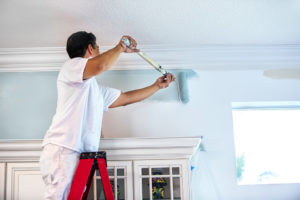
When Is a New System Necessary?
Only a professional can assess if a new system will be necessary to cover the added square footage. This is why a basic energy audit is essential as part of the addition plans. The audit will include cooling for the current home, and an estimation for the addition, so be prepared to share addition plans with the cooling professional. The estimation will help determine if the current cooling system will be able to handle the new space, or if a new system will need to be installed. This information will also help determine the size and construction of the addition, as the cost of cooling the area will have an effect on how much can be built. If the audit determines that a new HVAC system is necessary, that cost must be added into the overall cost of the home modification. Either the system will need to be replaced, or a ductless mini-split system, or other smaller type of system, will need to be installed.
Considering the Options
If the existing cooling system just won’t cut it with the new rooms, there are some options to consider. The range of A/C systems includes zoned, room, central, and evaporative cooler, all which effectively cool an area when maintained properly. The zoned unit, also known as the ductless mini-split, will provide cooling without ductwork, and is mounted on a wall. Many Floridians choose this option as it is among the most cost efficient to install. A room unit provides spot cooling, and is mounted in a window or comes through a portable unit. The central unit relies on duct systems to move the air throughout the whole home. This is one of the most expensive installs, but the most convenient and energy efficient. The evaporative cooler pulls outdoor air into the space, cooling your home through evaporation methods. This is also known as a swamp cooler. The right option is the one that fits into the budget, cools the new area, and remains efficient. Some homeowners choose a new cooling system for the addition alone to avoid changing the structure of the home with ductwork.
Other Factors to Consider in Choosing the Right System
Budget is often a deciding factor in choosing a system to cool an addition. However, it’s important to consider the amount of money saved over time with the right cooling system. After the addition is completed, the existing system will begin to work harder to cool more space. This will increase bills and wear down the unit faster. This long-term money loss is exactly why the cost of cooling the addition must be figured into the overall budget for the project. The existing cooling system must also be considered in more than its current effectiveness. Are the residents of the home happy with the current system? Does it keep the home as comfortable as desired? Will it be as effective in the new rooms? An addition to the home is a great opportunity to add ductwork throughout the new walls and to consider or update the current A/C system.
Tips in Lowering Overall Cooling Costs
As space is going through changes, consider the following tips to help reduce the cooling cost over the long term and continue cooling your home for years:
- Use a programmable thermostat.
- Use ceiling fans to help move air.
- Take this opportunity to add extra insulation to attics and air ducts. Seal any cracks in the home.
- Use an outdoor grill during Florida’s hottest days. Avoiding indoor appliances will help the A/C do its job.
- Cover windows with energy-efficient material. This will let in light while blocking solar rays.
- Use the fans in the kitchen and bathroom to help remove humidity from the home.
These tips will keep the A/C unit working longer, and will reduce energy bills. The new rooms will be as cool and comfortable as the rest of the home.
Determining the specifics of an air unit is easier with a professional consultation. The type of unit, ways to increase efficiency, and the real cost of cooling the addition will be determined during an estimation. Contact Mahle Cool Air in Venice to begin the consultation process for your new addition. Call or Text (941) 203-7955
How to Make Your Central Air Conditioner More Efficient
If you are like others, you are preparing for the hot and sunny weather of summer. Most people spend a lot of money to keep their homes cool and comfortable, and a lot of them could save tons of money by following a few simple tips.
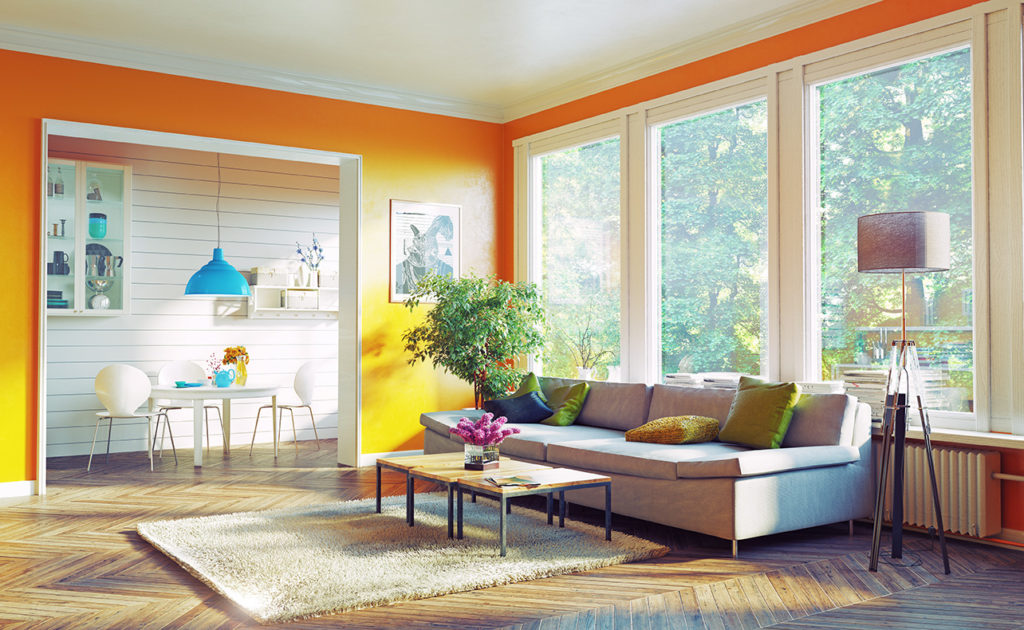
If you want to achieve a cool temperature in your home no matter the weather, properly maintaining your central cooling unit will do wonders for your monthly utility bills. Some of the advice you read might not seem like it will do much, but each step works together to provide you with outstanding results. You will keep the summer heat at bay without breaking your budget in the process, and the outcome will please you.
Clean Your Condenser Unit
Looking at your condenser unit is a good place from which to start when your mission is to control your cooling bill. Located outside your home, the job of the condenser unit is to transfer the hot air from your house to the outside world, but you might have let a lot of time pass since you cleaned it. Dirt and grime that collect on the unit make your air conditioner work much harder to keep your home cool and your energy bill will go up as a result. Before you do anything with your condenser unit, turn the power off so that you don't run into trouble.
Keep Your Indoor Vents Clean and Clear
Most people never think about the condition of the vents in their home, but they are throwing money away without realizing it. Having clean and clear vents is essential if you want your air conditioning unit to work at its best, saving you money over the long run. Ensure that no desks, boxes or other objects are blocking the outside of your vents. Over time, dust builds up inside your vents and reduces the efficiency of your unit. Unscrew all of your vents and look inside them with a flashlight to see how much dirt is present, and you might need to grab a vacuum cleaner to get rid of the mess. This process can take some time to complete, but the money you will save is worth it.
Adjust Your Thermostat
If you have cleaned your vents and condenser unit and are still not happy with your energy consumption, you might think you are out of luck, but you are not. Consider increasing the temperature of your thermostat by a few degrees, and the difference will surprise you. While you won't notice much of a change in the temperature of your home, altering your thermostat by 4 or 5 degrees can lower your energy bill more than you might think. Even if you are feeling skeptical, give it a shot to see if it helps, and you won't be disappointed.
Get a Smart Thermostat
If you are serious about lowering your cooling bill as much as possible, invest in a smart thermostat. These devices let you set a timer to turn your central air on and off depending on when you will be home. For example, you can program it to turn off while you are working and to turn back on before you return. You will always come home to a cool house, but you will also save a lot of money on your energy bill.
Call a Professional
With a little determination and a proven plan, you can go far when it comes to lowering your energy bill during the summer. Although taking steps to maintain your unit is a smart move, it won't always be enough. For the best results, you must contact a team of professionals to inspect your central air unit and make any needed air conditioning repairs. The increased efficiency of your air conditioner will more than pay for the cost of the company you hire, making it an investment with unbeatable returns. Call or Text us today for more details (941) 203-7955.
Learn the Pros and Cons of Mini-Split Heat Pump HVAC Systems

If you're upgrading your HVAC system or choosing one for a new construction, there are many great heating and cooling products. A mini-split heat pump is a viable option if your home doesn't have ductwork. Learn more about this type of system and how it can efficiently keep you comfortable throughout your home.
Understanding a Mini-Split Heat Pump System
This HVAC installation uses mini-split technology with a heat pump. It's ideal if you already have a ductless system or don't plan to install one. The mini-split is also a great choice when you add a room to your home but extending the ductwork isn't possible.
The system has two main components: an exterior compressor and condenser and an interior air handler in several rooms. It heats spaces by pulling air from outdoors, heating it and releasing it into the rooms. It also cools spaces by pulling warm air out of your house.
Pros of a Mini-Split HVAC System
Mini-split systems offer several advantages to other HVAC equipment, including cost. They're a more affordable option for homes that don't have existing ductwork. Because of their design, they're more energy efficient than central HVAC systems that lose about 30 percent of heated and cooled air in the ducts.
Mini-splits consume less energy too because they maintain zoned temperatures. You can adjust where you need more heating and cooling instead of changing the thermostat for the entire house.
The zoned temperatures also maximize comfort for each person in your home. For example, kids at play indoors might need to turn down the thermostat while you relax in another room that's set for your comfort. The whole family doesn't have to suffer just because one person likes cooler or warmer temperatures.
In addition, there's more flexibility when it comes to installing mini-split systems. They eliminate having to install ducts and only require a small, 3-inch hole in the wall where the handlers connect to the exterior unit. Installers can also hang them on walls, suspend them from the ceiling or mount them into drop ceilings. You can even get floor-standing models.
Cons of a Mini-Split HVAC System
Fortunately, there aren't many disadvantages to choosing a mini-split heat pump for your home. If you already have ductwork, then installing this system may cost more than replacing the central HVAC unit that you have. Although, you might be able to offset the cost with local incentives and rebates.
Installing this HVAC system isn't a do-it-yourself project either. It requires the skill of a trained installer because not placing the exterior and interior units correctly affects how the system functions overall. Having them in the wrong places may reduce the energy efficiency of the whole system. Each air handler also needs to be the correct size for each room to properly control temperature and humidity.
Furthermore, you might not like how the air handlers look inside your home. Vast improvements have been made throughout the years to improve the aesthetics, and many units look quite stylish. However, they're more noticeable than central HVAC vents.
Find Your HVAC System Today
If you need a new heating and cooling system in Venice, Florida, Mahle Inc. Cool Air & Heating offers a complete line of Bryant equipment. Our knowledgeable staff can educate you further about which type of system may work best for your home. Call or Text us today for more details (941) 203-7955.
Keep Summer Attic Heat Out Of Your Home And Reduce AC Load With This Home Improvement Tip
That nice large attic in your home sure is great for storing all of the stuff you only need part of the year, or even the stuff you just haven't had the time to go through and get rid of, isn't it? It's great to just be able to hide a box or two up there until you need whatever is inside of it again. But something that might not be so great about the attic in your home is the additional cost that can sometimes come with for several reasons.
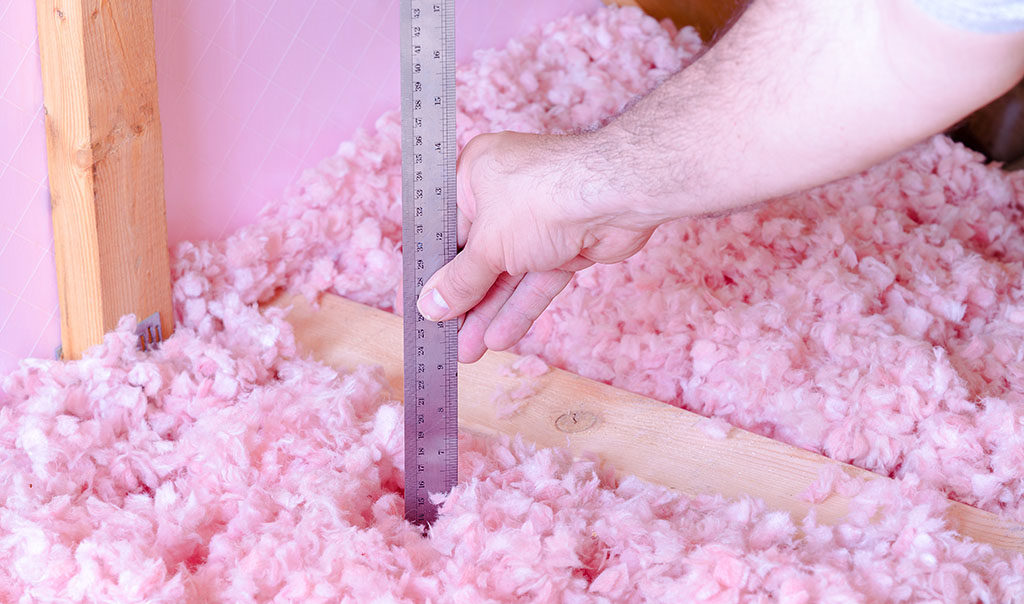
A lot of times this additional space makes your air conditioning work extra hard to keep that extra space as cool as the rest of your home, especially in the grueling summer months we experience. It is expensive and most of the time doesn't work that well, which may or may not be an indicator of an aging air cooling system.
Regardless, sometimes the heat from your attic simply seeps into other rooms in your home, driving up your AC bill and keeping the temperatures high anyway. So let's take a little time to talk about some simple home improvement tasks that can keep that summer heat out of your home, all while helping to lower air conditioning bills while you go about it.
There are a few easy things you can do in regards to cooling your home. The most common of these is to properly insulate your attic space. A lot of times when older homes were built, this step was skipped, which means your attic could be completely uninsulated. And just as often the thought never really occurs to new homeowners to revisit it, which is a shame because it's such a simple step that can really help your home quite a bit with little work required. The first way insulation works is by keeping heat away from and out of your home. This additional barrier helps keep the temperatures down by preventing the sun from penetrating too deep into your home, regardless of ambient temperatures. Even if it's a scorching day outside, the right amount of insulation will work to keep most of that heat where it belongs -- not in your attic. Obviously windows might be a completely different story when it comes to insulation, but this is the best way to keep that heat from seeping through the exterior walls and into your home's living space too.
Since insulation works to keep air molecules where they are, it can also help in cooling your home by reducing the amount of cool air that escapes outside. This means your air conditioner catches a break because more of the cool air it is working to put in your home stays there. This is called convection, or the reduction in the movement of air. If your AC system finds itself having to work less hard to cool your home, that means you'll be seeing lower air conditioning bills too. In this case, the insulation usually pays for itself.
Now, as with any home improvement project, there are things to keep in mind when adding insulation to your home or attic. It might be tempting to go out and buy the thickest possible insulation material you can find. The thicker the material, the more cool air will stay in and warm air will stay out, right? Not necessarily. Once you reach a certain thickness with your insulation material, the results you will see (and feel) usually tend to plateau. There's a unit of measure for this called the R-value. Materials with an R-value between R30 and R60 are usually good enough for most attics to see diminished air bills and experience lowered temperatures. It's also okay to add additional layers if your attic already has some insulation in place, but going above these numbers won't really get you any increased benefits, so it's better to save your money and spend it elsewhere. Of course, this all depends on the size of your attic or the space you'll be insulating too. Keep that in mind.
Another solution besides adding solution to your entire attic is to simply seal potential air leaks that could be hiking up your energy bills. Before you add additional insulation, make sure that pathways between your living areas and the attic are sealed. These can include areas around wiring, plumbing, ceiling light fixtures, vents, and the attic door itself. If it's not a space that's used regularly, there is no need to keep these pathways open. These air leaks can tend to be a huge source of air infiltration and eliminating them can yield huge benefits when it comes to lowered AC bills and lowered temperatures in your home. Plus, it can usually be a lot less work than insulating your entire attic space.
Improve Your Home and Reduce the Heat Load on Your House With Window Tinting
Improve Your Home and Reduce the Heat Load on Your House With Window Tinting
Tint on car windows is a common sight in almost every city. Although it's mainly for style, the tint also reduces the glare into the vehicle. This same concept applies to your household windows. Views to the outside world may be intriguing, but they allow a lot of heat to move into and out of the house. Consider how you can save money on your yearly air conditioning bill by installing window tinting.
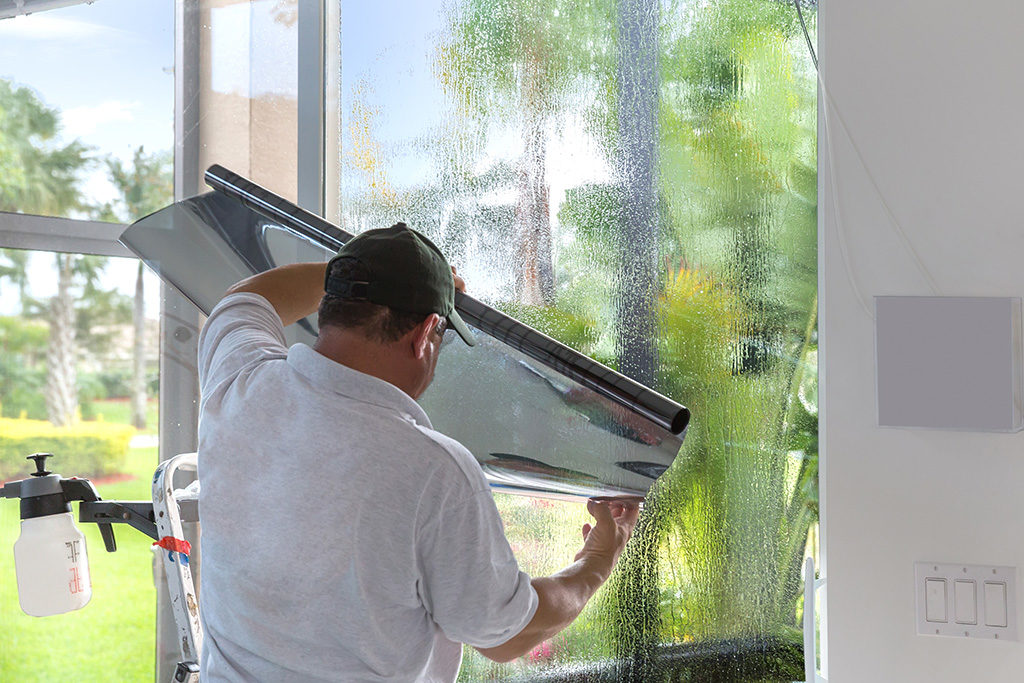
Light Equals Heat
You might enjoy the light that pours into your living room in the spring, but the area heats up very quickly. Sunlight consists of ultraviolet radiation, which is a mixture of light and heat. As the sun moves through your bare windows, the carpet and interior heat up in response. If it's hot enough, you might turn up the air conditioning so that comfort is achieved once again. The battle between the incoming sunlight and your air conditioner only results in high energy bills each month. Home window tinting can do wonders for your overall bill.
Tinting and Filtering Features
Home window tinting is merely a film that sticks to the glassy surface. It's normally applied to the window's interior so that the exterior elements don't break down the materials. You're still able to look through the tint because it acts like sunglasses on your windows. The exterior will look slightly darkened, but you'll still see details of everything nearby. The darkened appearance allows built-in filters to curb heat loads on the home by essentially bouncing them away. You're left with a cool window that just provides some light into the interior.
Choosing a Type
There are many tint types to choose from in the marketplace. Each manufacturer has their specific filter blends. In general, they all operate in the same manner. Your biggest consideration is tint color. From limo dark to light gray, tint colors are produced with varying darkness levels. Try to take a few samples home, and press them against the window. Imagine how the window will look with complete coverage. South-facing windows may need darker colors than north-facing types, for example. Always evaluate every facet of your potential installation before making a tint decision.
DIY or Professional Installation
You're welcome to install the tint yourself or call the professionals. Adding the tint to the glass is similar to wallpapering a room. Roll out the tint, squeeze out all of the air bubbles and trim it to size. For some residents, however, performing the installation might be frustrating because of the intricate work to be completed. Professionals charge a small fee to cover this installation. It might be worth the investment to complete it with the experts in tow. In many cases, the tint will have a warranty and longer lifespan with a proper application.
Benefits Into the Winter
Some residents might be concerned about tint being a problem in the colder months. If light doesn't move into the home because of the tint's filtering process, your heating bills might rise. However, tint improves your energy bill in the winter too. Although light still bounces off of the tint, the interior remains insulated from any cold winds. As a result, you'll run the heater at a lower temperature as heat remains in the home for longer than before. Tint works for both hot and cold applications, which only benefits your HVAC system in the end.
Considering the Privacy Factor
Although a reduced heat load on your home is motivation enough, tint also offers the benefit of privacy. You can clearly see out of the window, but passersby have a difficult time. The interior isn't even seen through the tint regardless of its color. People see their reflection in the tint. If you live in a densely populated area, privacy is a major concern. Tint protects the interior from prying eyes that might be tempted by your valuables near the windows, including electronics and fine furniture.
Most tint lasts for many years without any issues. Consider new tint when you notice any areas that are peeling or cracked. Any damage to the tint will only reduce its efficacy on sunlight radiation. You want picture-perfect tinting that will only keep you cool in the spring and summer months.
Remodeling your kitchen? Get rid of kitchen waste heat to keep your home cooler
Kitchen Remodeling - Tips To Keep Your Home Cooler From Waste Heat
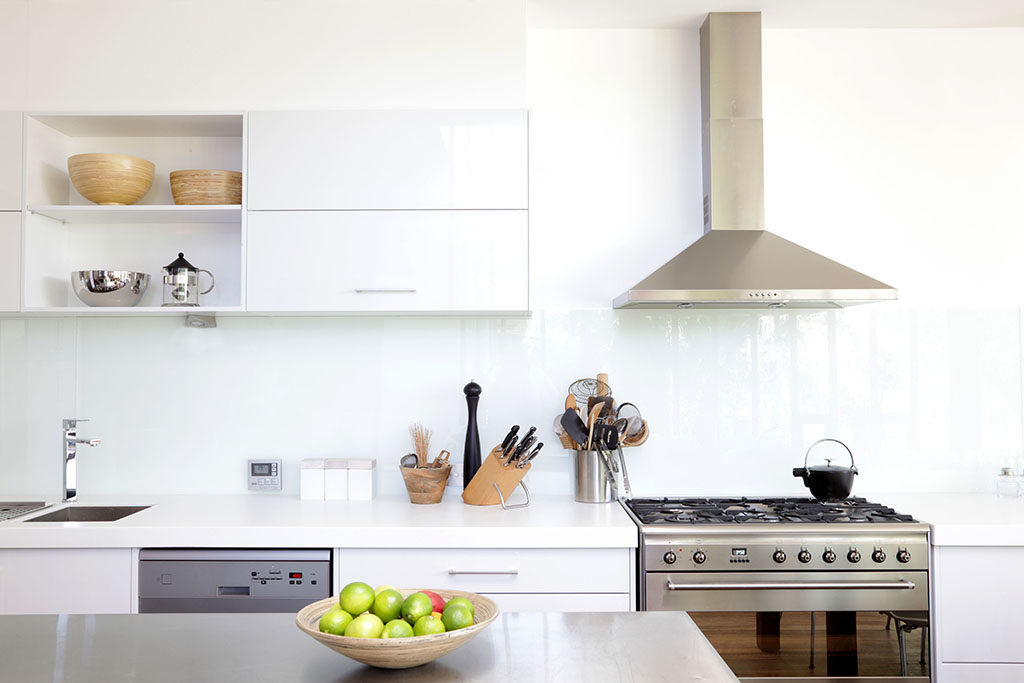
When summer starts coming around, most people start to notice an increase in their electric bills. Your air conditioning unit needs a lot of energy to keep your home cool. This is especially true for areas such as the kitchen where a lot of heat is created from the appliances. You will notice your energy bill start to skyrocket without proper ventilation.
There are many ways to help reduce your energy costs and some of them can start in the kitchen. If you are planning a kitchen remodel, there are things to consider concerning your ventilation to remove waste heat and keep your air conditioning costs down.
Keeping The Heat Out Of The Kitchen
With all of the appliances in your kitchen and the amount of heat your create from cooking on the stove and in the oven, you will need to make sure proper ventilation is a top priority in your kitchen remodel. Cooking produces a lot of water vapor and waste heat on top of the smoke, odor and grease it creates. During the winter months, all of this waste heat may not seem like a big issue. However, during the summer you will surely start to take notice. Your ac unit will have to run longer and work hard to remove this excess heat. To keep this from being a problem, you will need a sufficient ventilation system that fits your space and your cook top.
Things To Consider When Choosing A Ventilation System
- Ducted vs Unducted - If you have a ventilation fan without a duct that leads outside, it's not a true ventilation system. These are known as recirculating ranges. They have limited ability to reduce the amount of smoke, grease, heat and odors that are created when cooking. These hoods are attached to a wall above a cook top and pull the air through the filter and then recirculate that air back into the kitchen. Unfortunately, the air will usually still contain gases and odors along with heat and humidity. A true ducted ventilation system takes all of the heat, odors and gases and releases them outside.
- Ventilation Efficiency - Typically, range hoods with exhaust fans vented to the outside are considered the most effective types of systems. Having a fan above the range where the cooking happens take advantage of heated air naturally rising. Small ducts or duct systems that have too many elbows in them decrease the efficiency of the ventilation system.
- Ups And Downs - Most kitchen remodels will include an updraft system if possible. These are installed directly over the cooking source and helps to gather all of the heat and vapors that naturally rise up from the cooking process. The exhaust fan then grabs them and moves them to the outside through the ducts. Downdraft designs are not as popular and are designed to pull the air across the cook top surface and then downward through a duct that leads outside. Because these types rise no more than 10 inches above the surface, they are usually too short to be able to catch the vapors that rise from tall pots and pans.
- Depth And Width - For a range that is 30-inches wide, the vent or hood will also need to be at least 30-inches wide. If space is not limited, it is always better to have a hood that is wider than the range. The hood's depth is also an important factor to consider. Typically, it should come out far enough to cover at least the middle of the front cook top burners.
- Ventilation Rate - When cooking appliances are set up against a wall, the ventilation for them will be more effective. For cook tops that are out in the open such as on a kitchen island, the ventilation needs to be much larger with a bigger fan. For ventilation systems that are against the wall, the minimum exhaust rate should be no less than 40 CFM or cubic feet of air per minute. This is per lineal foot of cook top. For ventilation systems that are out in the open, the minimum exhaust rate shouldn't be less than 50 CFM per lineal foot.
Proper ventilation is necessary to keep your air conditioning unit from overworking and to keep your home cooler in the warmer months. A good ventilation system will rid your kitchen and home from excess heat that comes from your stove, refrigerator compressor, dishwasher and more to keep your kitchen nice and cool.
